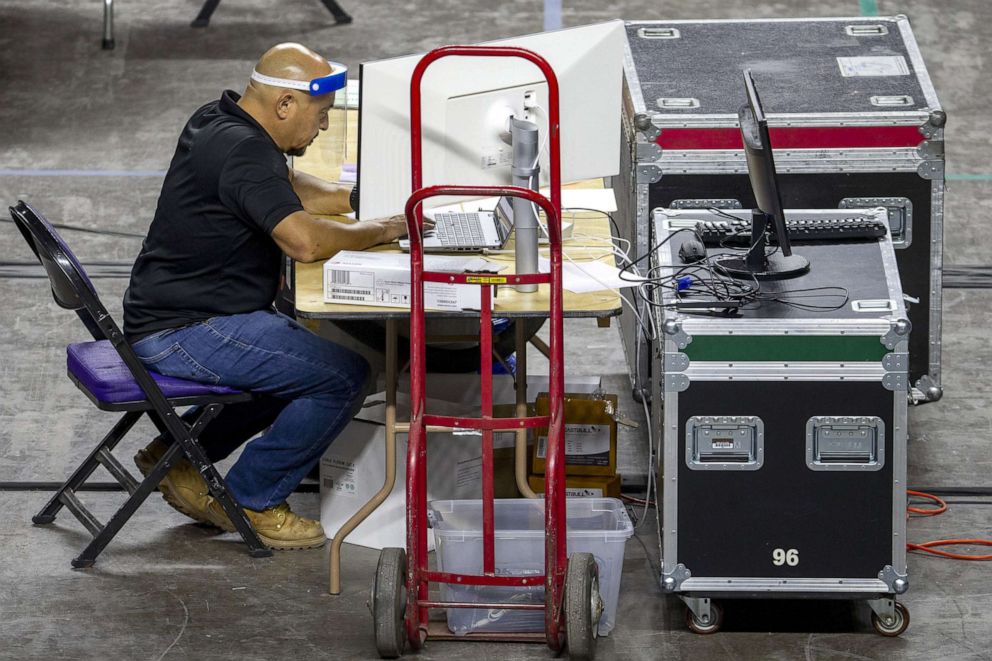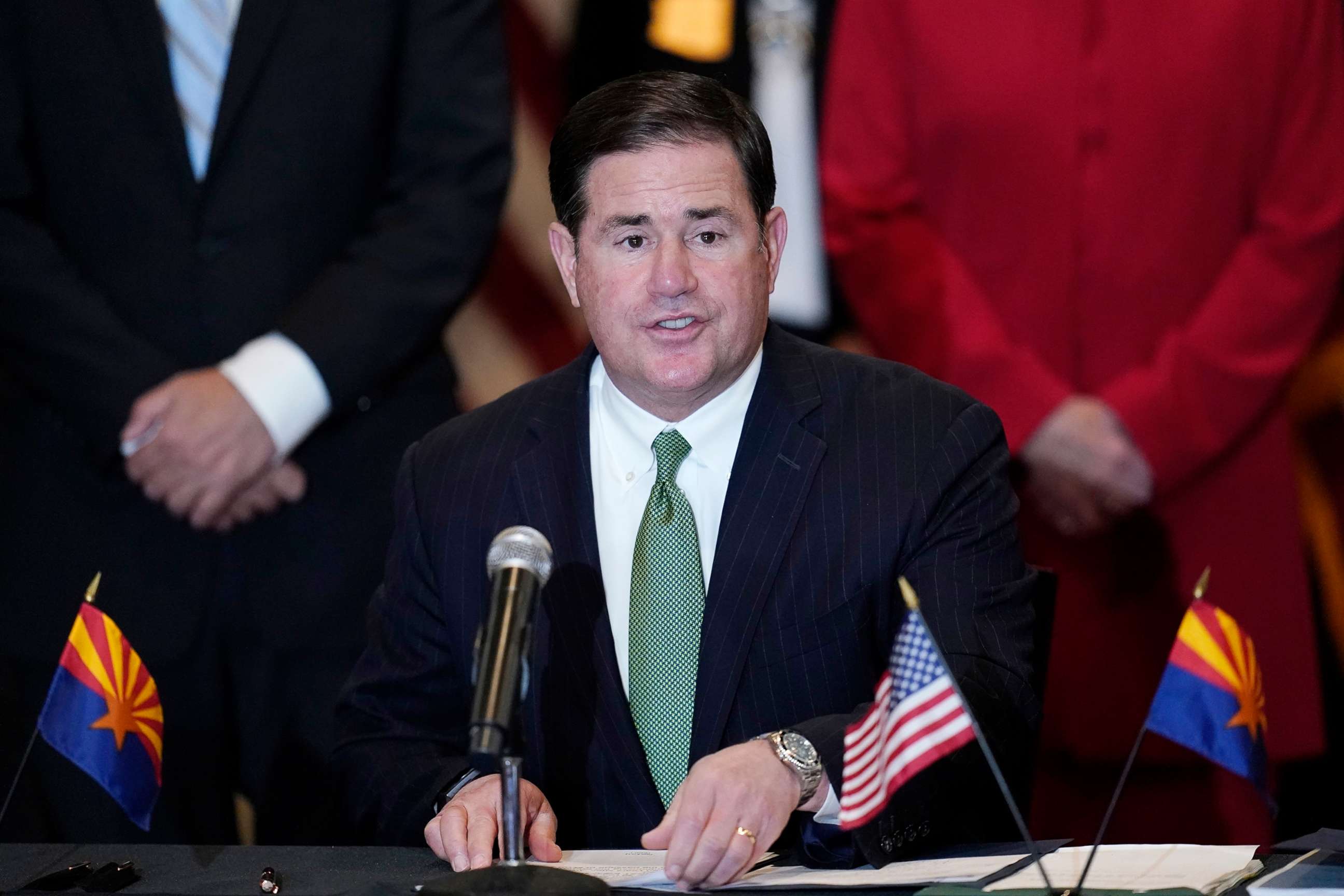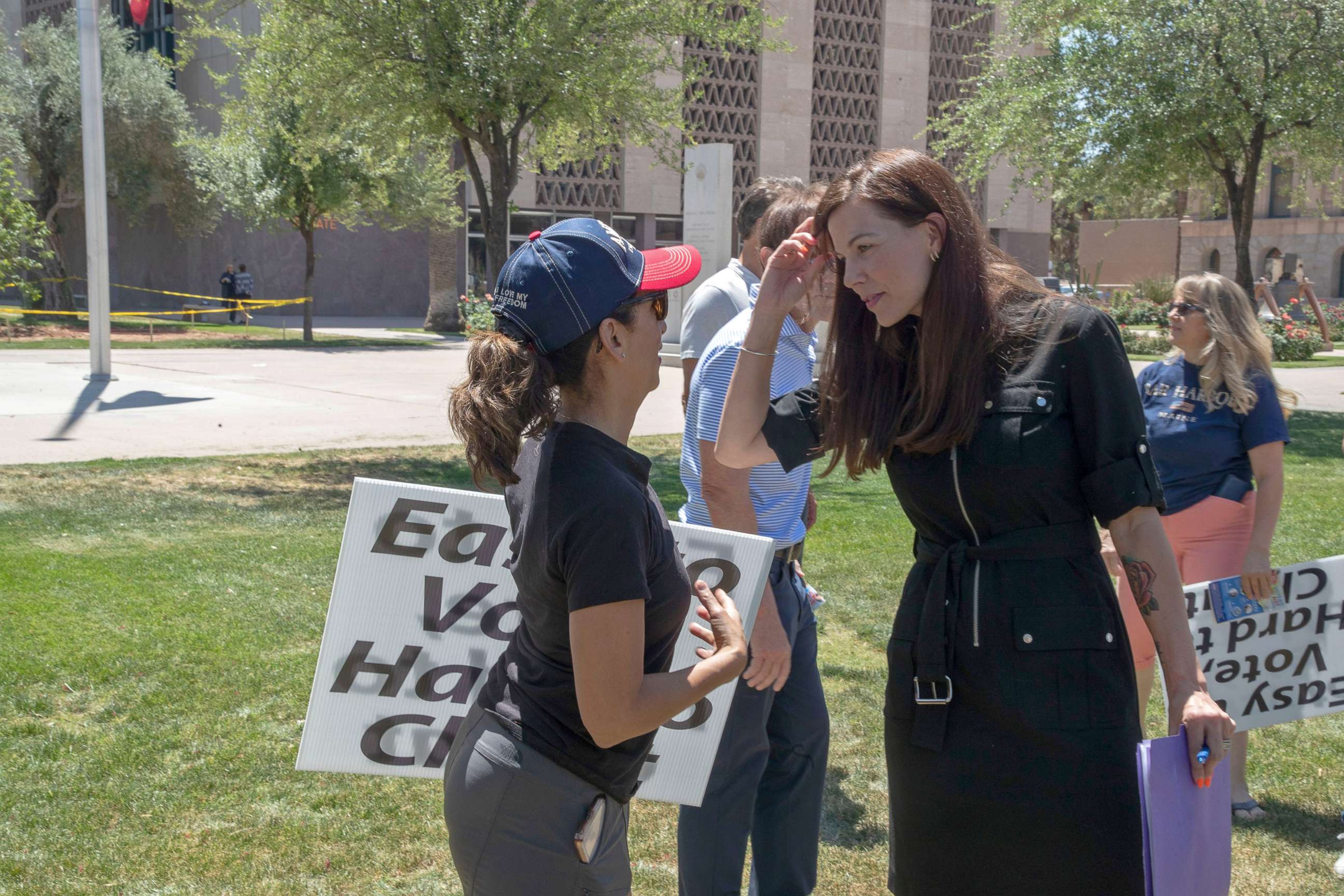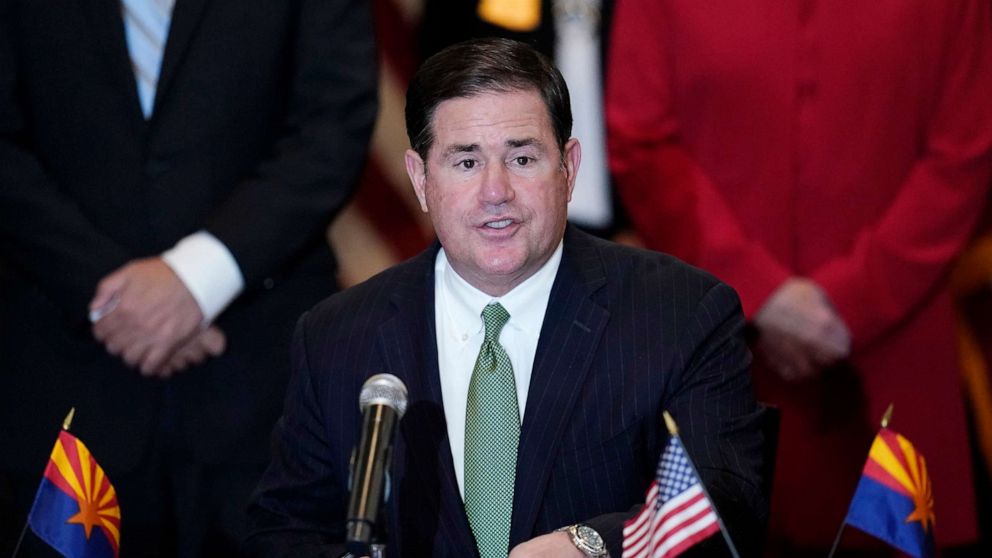Arizona Gov. Doug Ducey signs law to purge voters from permanent early voting list
Arizona Gov. Doug Ducey signed a bill Tuesday which will remove the word "permanent" from the state's permanent early voting list (PEVL), a method that was heavily used by voters in the 2020 election.
He signed the controversial bill, SB 1485, less than an hour after the Arizona Senate passed it 16-14, along party lines. It also comes as auditors are at work inspecting Maricopa County's 2.1 million 2020 ballots under a Senate-ordered audit.
Arizona joins other Republican-led states that have introduced, passed and signed into law restrictive voting legislation. There are 361 bills in 47 states that introduce restrictive provisions.

The new law dissolves the word "permanent" before references to the early voting list. County officials are now required to send a notice by Dec. 1 of every even-numbered year to any voters on the list who failed to vote using an early ballot in at least one primary or general election where a municipal, statewide, legislative or federal race was on the ballot over four years.
According to Democratic Arizona Secretary of State Katie Hobbs, who opposes the legislative action, 75% of Arizonans are members of the permanent early voting list and 80% of Arizonans used the early voting mechanism to cast ballots in the 2020 election.
Several Democrats said Tuesday that the voters who would be most negatively impacted by this legislation are the ones who do not exercise their constitutional right regularly.
"Voting is probably our most precious civil right, but it's not mandatory ... (this bill) seeks, as it seems, to punish those who do not regularly vote," said state Sen. Kristen Engel. "Those are not the folks we need to make it more difficult to vote."
"This will impact all voters, not just Democrats ... This is going to impact independents. This is going to impact Republicans," said state Sen. Rebecca Rios, the minority leader.
Democrats have said the bill will remove at least 126,000 people from the early voting list -- a number which would have been higher if the measure was applied for records based on the 2020 election.
"The number could be as high as 145,000 voters," Democratic Rep. Raquel Terán said last month, citing the overall number of voters who would have been removed if the bill was applied last year.
"And this includes close to 30,000 Latinos. There are organizers in those communities ... who want to make sure that they do have a voice in our democratic process. And the PEVL has been that vehicle," she added.

Ducey defended his decision to sign the bill in a video posted to his Twitter account Tuesday afternoon, saying that although he has full confidence in Arizona's election system, that does not mean he can't take steps to make it stronger.
"This change will ensure active voters who continue to receive a ballot and free up resources for county recorders, to use on priorities like election security and voter education. Let's be clear, despite all the deceptive and heated rhetoric being used by some partisan activists to lobby against this reform, not a single Arizona voter will lose their right to vote," he said.
Republican Sen. Kelly Townsend, who temporarily tanked the bill late last month over her concerns about how results of the election audit may turn out, said she was ready to vote yes on the bill Tuesday, because she had received assurances that "we are now looking at other issues that need to be fixed for the 2022 election."
"It's about restoring confidence for everyone to cast the ballot regardless of what their party is. Because we have issue with the PEVL list that has drawn attention and caused great doubt, I think it's important that we looked at it and came up with solutions to help clean that up," Townsend said, without elaborating on what the issues with PEVL were.
President Pro Tempore Vince Leach defended the bill and argued claims of voter suppression were baseless because there are other ways to vote.
"After a series of items happen that are specifically spelled out in the bill, this bill removes non-voters. They have elected not to participate or they're moved or they're dead. This is not removing voters," Leach said. "We hear all the time that this is voter suppression. These people have plenty of other means of voting."
Leach's comments sparked passionate remarks from state Sen. Juan Mendez, who called out his colleague by district when explaining his own vote against the bill.
"Some of you, especially the legislator from District 11, need to understand that there is no kind of voter that is better or more deserving of access to the right to vote. Voting regularly? Seriously, you're really trying to shame voters?" Mendez said. "Are we checking if concealed-carry people still want the Second Amendment rights if they don't find enough bullets every year? ... This bill looks like nothing more than a ruse to disenfranchise voters that you don't like."

Business leaders in Phoenix penned a letter to Arizona lawmakers at the beginning of April, urging them to vote down SB 1485 and other bills which would make it harder to vote, such as one which would require new further identification when voting absentee.
"These proposals are a concerted effort from those in Arizona -- and across the nation -- who wish to sow additional doubts about our elections in the minds of voters and feed into the paranoia that has plagued our political discourse over the past several months," they wrote. "These measures seek to disenfranchise voters. They are 'solutions' in search of a problem. They are attempts at voter suppression cloaked as reform - plain and simple."
Ducey fired back at those claims in his video, saying if it was best to update their systems to run their businesses more efficiently, they would do the same.

"Large corporations have decided to insert themselves into the debate over election law. My advice to them regarding this law is simple: know what you're talking about before you say anything. These big businesses seem to embrace a static view of elections ... and view any change suspiciously. It's wrong. Dead wrong," he said.
There are additional pieces of Republican-led legislation which could be acted on in the coming weeks. The Senate has already passed SB1713, which would require voters to return additional identification with their absentee ballot, such as their driver's license, state ID or tribal ID card number or a copy of a federal/state/local government-issued ID. They could also use their voter registration number and a document that contains their name and address where registered to vote, like a utility bill. Its final form has not yet been passed by the House.
ABC News' Quinn Scanlan contributed reporting.




